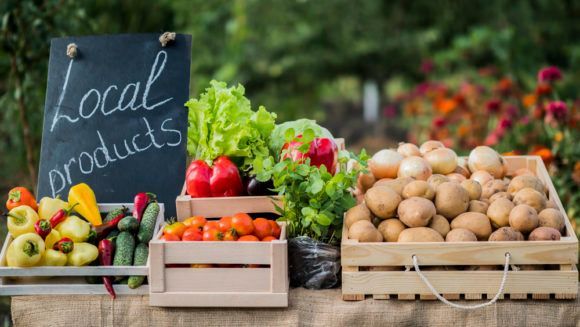How Farmers Markets Benefit Local Communities
How Farmers Markets Benefit Local Communities

Farmers markets are more than just places to shop—they are vibrant community hubs that bring people together, support local economies, and promote healthier lifestyles. Whether you're a seasoned market-goer or new to the experience, understanding the broader impact of farmers markets can deepen your appreciation for these essential community spaces.
Supporting Local Farmers and Small Businesses
Farmers markets allow consumers to directly support local farmers and businesses. By cutting out the middleman, farmers can get a better return for their produce while consumers gain access to fresher, higher-quality food. Additionally, farmers markets often feature artisans and small businesses that consumers can support and help grow.
Strengthening Community Connections
Farmers markets bring all kinds of members of the community together. For some, the market is a social hub to bring friends and family to. For others, the market is a vital source of fresh and healthy food. In general, farmers markets serve as gathering places where neighbors can meet, socialize, and engage with local growers. Not to mention, some markets also offer cooking demos, live music, and fun activities that turn shopping into a social experience.
Promoting Healthier Eating Habits
Access to fresh and responsibly grown produce encourages healthier eating habits. Farmers markets provide a broad array of fruits and vegetables, many of which are organic or grown using sustainable methods. Studies propose that organic produce contains higher levels of essential nutrients such as antioxidants, vitamins, and minerals compared to conventionally grown produce.
Boosting the Local Economy
When you shop at a farmers market, your money stays in the community. As Anne L. Alonzo aptly put on usda.gov: “When food is produced, processed, distributed and sold all within the same region, more money stays in the local economy. This leads to economic development and job creation.” Studies show that spending at local markets generates more economic activity than shopping at large chain stores. While farmers and marketers depend on market-goers to purchase their products, these same farmers and businesses tend to buy their supplies locally. This keeps the revenue cyclical. Farmers markets strengthen the overall economic well-being of the community.
Reducing Environmental Impact
According to Susy Alkaitis at lnt.org (Leave No Trace), “On average, a piece of produce in the United States travels 1,500 miles before being sold, amounting to 250,000 tons of greenhouse gas emissions from produce transportation annually.” Locally sourced food travels fewer miles than grocery store produce, which often comes from across the country or even overseas. This means fewer emissions from transportation, less packaging waste, and a lower overall carbon footprint. Many farmers markets also emphasize sustainable farming practices, contributing to environmental conservation.
Encouraging Awareness
Farmers markets offer an opportunity for consumers to gain insight on where their food comes from and how it's grown. Markets give the consumer the chance to ask questions about the food they’re eating directly from the people who grew it. Many farmers are happy to share their knowledge about sustainable agriculture, organic practices, and the importance of seasonal eating. Markets are a great place for market-goers to learn more about the benefits of fresh food and clean eating.
Enhancing Food Security
For many communities, especially those in food deserts, farmers markets provide a vital source of fresh food. A new and increasingly prevalent aspect of farmers markets across the nation is the acceptance of benefits from federal food assistance programs like Supplemental Nutrition Assistance Program (SNAP) and Women, Infants and Children (WIC). By accepting these benefits, farmers markets ensure that nutritious food is accessible to all members of the community.
Farmers markets are a driving force for economic, social, and environmental well-being in local communities. By supporting your local market, you’re not just buying fresh food; you’re investing in the health of your community, the success of local farmers, and the future of sustainable food systems.
The Acres Home Chamber Farmers Market is a community-driven market designed to increase the community's access to fresh food and healthy living. This bi-weekly market brings together local farmers, artisans, and small businesses to offer fresh produce, handmade goods, and more. Visit the market every 1st and 3rd Saturday at The Acres Home Chamber for Business and Economic Development, Inc.
Written By Kirstin Vaughn


